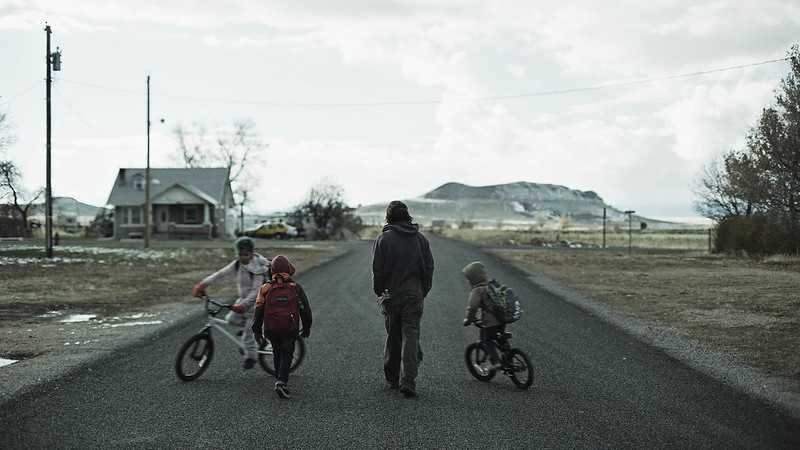
Sundance Film Review: The Killing of Two Lovers
Sundance
The Killing of Two Lovers
Sundance Film Festival
Director: Robert Machoian
The Killing of Two Lovers aspires to the experimental trappings of its NEXT category at Sundance. This narrative focuses on its principal subject, David (Clayne Crawford), as he grapples with the existential crisis of being separated from his wife, Niki (Sepideh Moafi), and their four children who live with her. The camera-work fixates on his emotions, and the film’s swelling score undergirds the emotional turmoil he feels under the surface of keeping it together and trying to be a good father while living away from his kids, in his own father’s home. Indeed, the gravity of his predicament takes form in the opening scene, in which he points a revolver at Niki as she sleeps in the morning.
David’s patterns of malaise, however, aren’t quite congruent with each other from a storytelling standpoint. While he continues to practice shooting someone in open fields, The Killing of Two Lovers squanders the punch of David’s neurosis in the aforementioned opening scene, and the rest of the film illuminates his frustration in private moments at his dad’s and via arguments with Niki—just as any American man in his situation would. David’s daughter, Jesse (Avery Pizzuto), confirms his suspicions that Niki has been seeing another man. Yet, we don’t see the same level of rancor and unpredictability from David throughout it all, only an act of self-defense that doesn’t quite correspond with a man whom we first expect to do the unexpected.
The Killing of Two Lovers has its interesting dynamics. For one, it’s set in a small, seemingly western town, which imparts a chamber-drama feel. Herein, David must confront the traditional tropes of masculinity in a contemporary but still blue-collar world—this is a not-so-wild west with appliance stores that sell smart–washer/dryers via liquidation sales. His integrity hinges on his emotional stability while he’s tempted by the prospect of a violent dissolution. From here, David is thrust to cope with his neutered manhood on a self-reflective, emotional level, which subverts the archetype of the self-reliant cowboy. Jesse looks to give him a kick in the pants by admonishing him to fix his relational problems with Niki, and Pizzuto delivers a convincing performance in doing so.
Really, all of the actors of The Killing of Two Lovers do a great job. The writing, however, keeps its semblances of story low to the ground and linear. As is, substance-wise, the film’s more psychological moments could have been condensed together for a short with some jarring resonances. At its current length, director Robert Machoian could have taken more risks to warp the narrative aspects to provoke us with more misanthropic behavior from David. But what we have here is another small-town spectacle from the neighbors. –Alexander Ortega
Showtimes:
Jan. 28 // 6:00 p.m // Temple Theatre Park city
Jan. 30 // 3:30 p.m // Redston Cinema 1 Park City
Jan. 31 // 8:30 a.m // Prospector Square Theatre Park City
Feb. 1 // 12:30 p.m // Rose Wagner Center
Read more of SLUG’s comprehensive coverage of the 2020 Sundance Film Festival.
